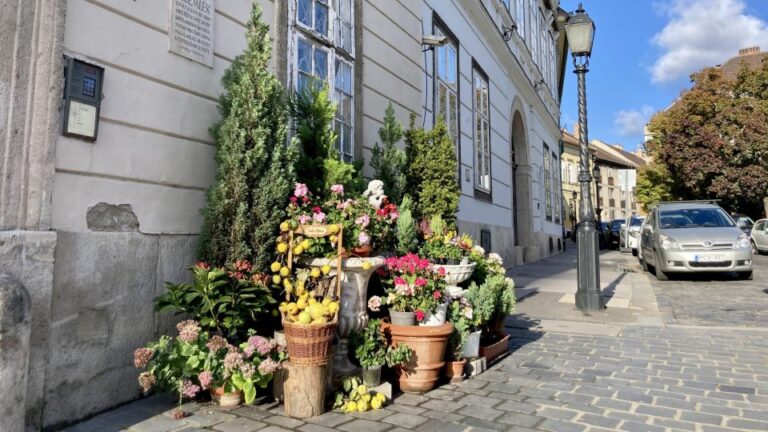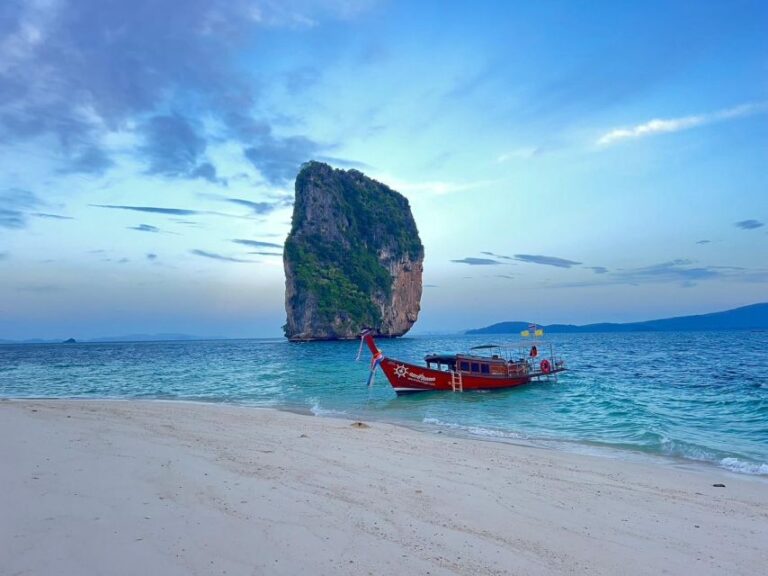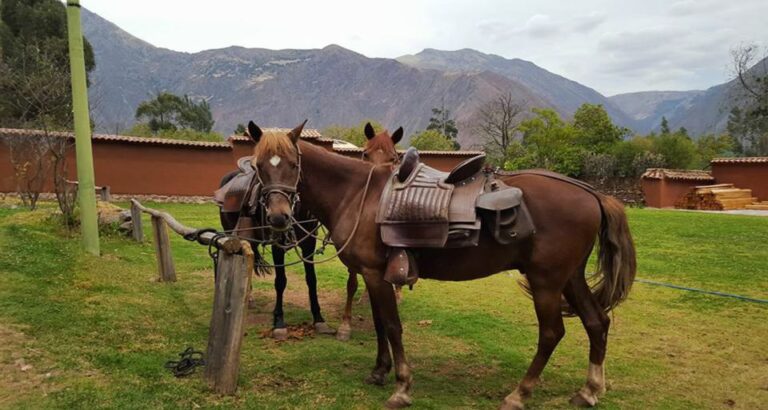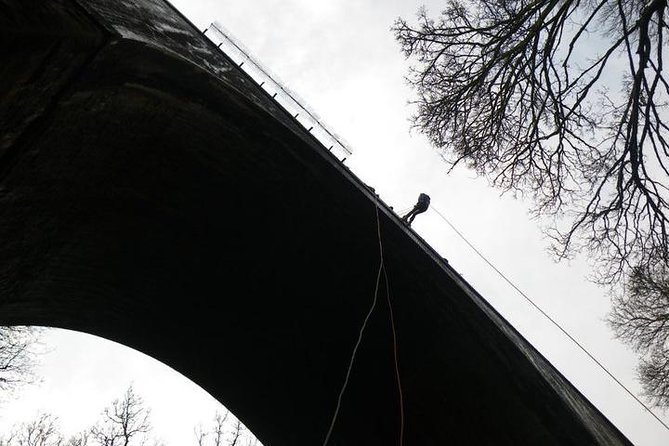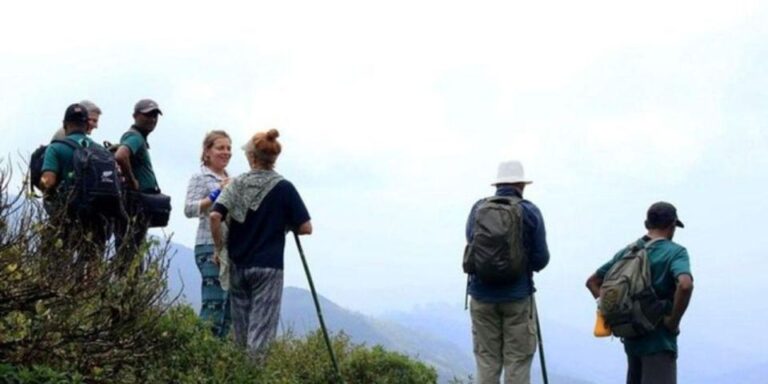Wine Class – Tuscan Classics
Set out on a voyage through the rolling hills of Tuscany with ‘Wine Class – Tuscan Classics,’ where each sip is a brushstroke painting a vivid portrait of the region’s rich winemaking heritage.
Discover the secrets behind iconic Tuscan wines and the intricate dance of flavors that define them.
But what sets this wine class apart from the rest? Stay tuned to uncover the hidden gems awaiting those eager to uncork the essence of Tuscan classics.
Just The Basics
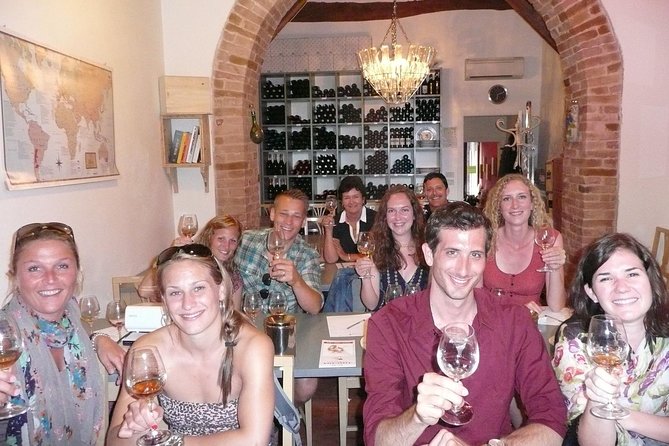
- Tuscan wine regions offer diverse terroir and unique grape varieties.
- Traditional winemaking techniques shape the bold flavors of Tuscan wines.
- Tasting Tuscan wines provides a sensory journey through centuries-old heritage.
- Pairing Tuscan wines with regional cuisine enhances the overall wine tasting experience.
Here's some more nearby activities we've reviewed
Tuscan Wine Regions Overview
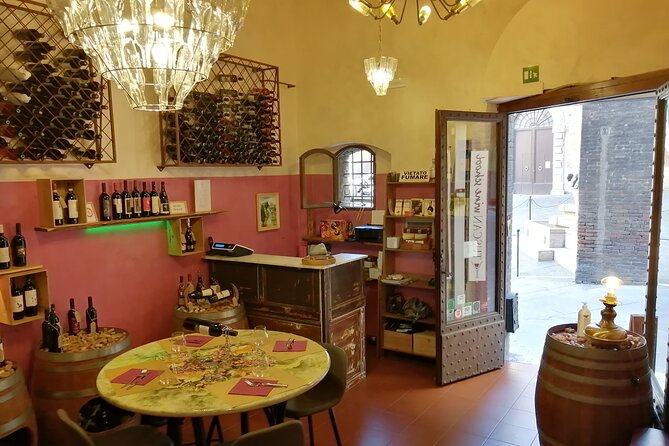
When exploring the Tuscan wine regions, travelers can expect a diverse and rich tapestry of vineyards, each offering a unique terroir and distinctive flavors.
The Tuscan terroir, characterized by its hilly landscapes, plays a crucial role in shaping the region’s wines. The climate influences, with warm summers and mild winters moderated by the Mediterranean Sea, contribute to the optimal conditions for grape cultivation.
In areas like Chianti, known for its Sangiovese-based wines, the combination of soil composition and sun exposure creates bold and robust reds. Meanwhile, in the coastal region of Bolgheri, the maritime influence results in elegant and aromatic wines, particularly with the cultivation of Bordeaux varietals.
Grape Varieties of Tuscany
Tuscany boasts a remarkable array of grape varieties that contribute to the region’s renowned winemaking heritage and diversity. Tuscan vineyards are home to an impressive selection of grape varietals, each adding its unique characteristics to the wines produced in the region.
Some of the most prominent grape varietals grown in Tuscany include:
-
Sangiovese: Known as the flagship grape of Tuscany, it’s the primary grape used in the production of Chianti and many other famous Tuscan wines.
-
Vernaccia: An ancient white grape variety primarily associated with the production of Vernaccia di San Gimignano, one of the first Italian wines to receive DOC status.
-
Canaiolo: Often blended with Sangiovese, this grape adds softness and fruitiness to Tuscan red wines.
Winemaking Techniques in Tuscany
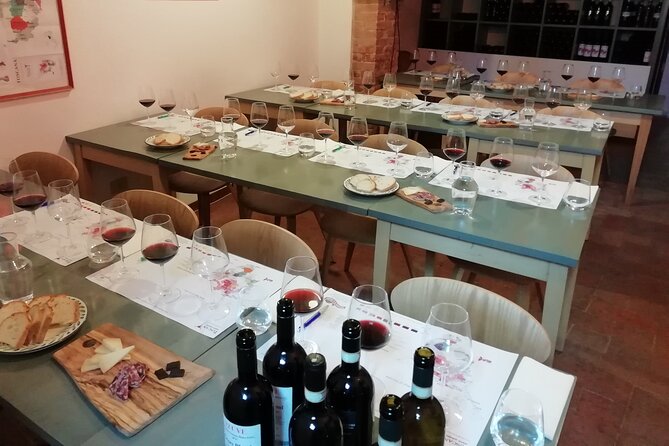
Utilizing traditional methods passed down through generations, winemakers in the region of Tuscany craft their wines with meticulous care and expertise. In Tuscany, vineyard practices play a crucial role in the quality of the wines produced. Many wineries still hand-harvest their grapes to ensure only the best fruit is selected. Plus, some vineyards practice organic or biodynamic farming methods to promote sustainability and enhance the natural flavors of the grapes. When it comes to fermentation methods, Tuscany is known for its use of oak barrels, which impart unique flavors to the wines. Winemakers carefully control the temperature and duration of fermentation to extract the desired characteristics from the grapes, resulting in the distinctive Tuscan wine profiles that enthusiasts love.
| Vineyard Practices | Fermentation Methods |
|---|---|
| Hand-harvesting | Oak barrel aging |
| Organic farming | Temperature control |
| Biodynamic methods | Duration management |
Tasting Notes for Tuscan Classics
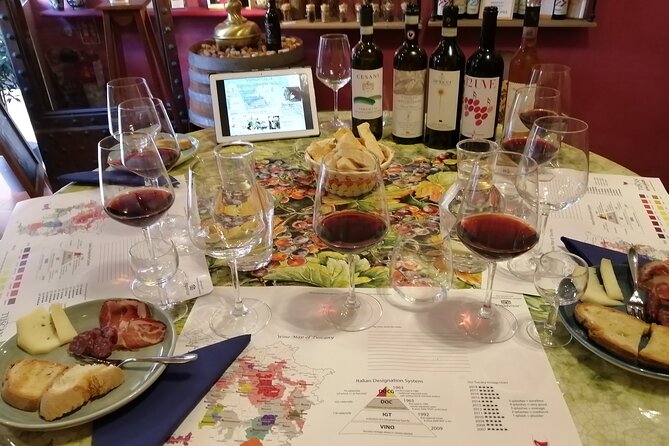
Crafted with centuries-old techniques and a modern twist, the Tuscan classics offer a sensory journey through Italy’s rich winemaking heritage. When exploring these renowned wines, here are key aspects to consider:
-
Aroma Profiles:
- Tuscan classics often present aromas of ripe red fruits, earthy notes, and hints of herbs, reflecting the region’s diverse terroir.
-
Vintage Comparisons:
- Comparing vintages allows enthusiasts to appreciate variations in weather patterns and grape quality, influencing the flavor profiles of these wines.
-
Historical Significance:
- Understanding the historical context of each Tuscan classic can deepen the tasting experience, providing insights into traditions and innovations that have shaped these exceptional wines.
Food Pairings With Tuscan Wines
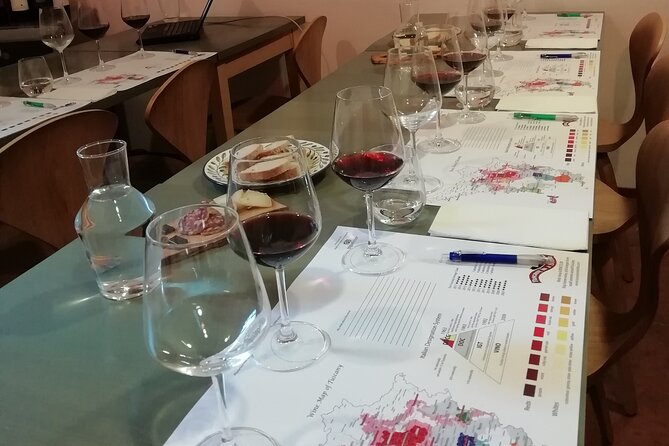
Enhance your Tuscan wine tasting experience by exploring ideal food pairings that elevate the flavors of these renowned Italian wines.
Tuscan wines like Chianti Classico are beautifully complemented by the rich flavors of Italian cuisine. Pair a bold Super Tuscan with a classic dish of Florentine steak for an explosion of flavors.
The acidity of Vernaccia di San Gimignano pairs perfectly with seafood pasta dishes, enhancing the taste of both the wine and the food.
When enjoying a glass of Brunello di Montalcino, consider serving it alongside a hearty dish of wild boar ragu to bring out its robust character. Understanding these wine pairings can truly enhance the enjoyment of Tuscan wines and the traditional flavors of Italian cuisine.
Tuscan Wine Culture and History
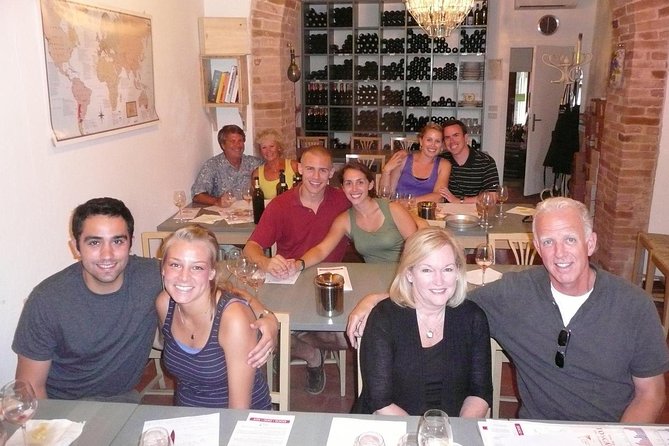
Exploring the rich heritage of Tuscan wine involves tracing back through centuries of viticulture and winemaking traditions that have shaped the region’s renowned wine culture.
Tuscan viticulture traditions have been passed down through generations, emphasizing the importance of the land, grape varietals, and traditional winemaking techniques.
The historical wine trade in Tuscany has been a significant factor in shaping the region’s identity as a prominent wine-producing area, with its wines gaining international recognition over time.
The trade routes established by ancient civilizations like the Etruscans and Romans played a crucial role in spreading Tuscan wines across Europe and beyond, contributing to the global appreciation of Tuscan wine culture.
Iconic Tuscan Wineries to Visit
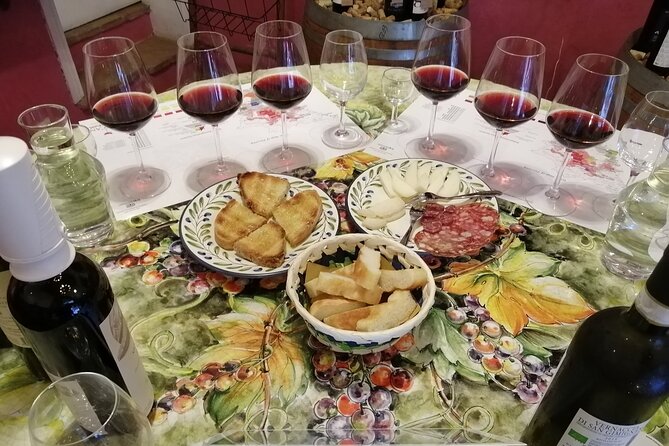
Discover some of the most iconic Tuscan wineries that offer a glimpse into the region’s rich viticulture heritage and exceptional wine production.
Wine tourism in Tuscany is a delightful experience for enthusiasts. One must-visit winery is Castello Banfi, known for its Brunello di Montalcino wines. Their vineyard tours provide an in-depth look at the winemaking process.
Another highlight is Antinori nel Chianti Classico, where visitors can explore the historic cellars and taste renowned Super Tuscan wines.
For a more intimate experience, consider a trip to Querciabella, an organic winery producing elegant wines in Greve. These wineries not only offer exceptional tastings but also the opportunity to take in the rich winemaking traditions of Tuscany.
Tips for Buying Tuscan Wines
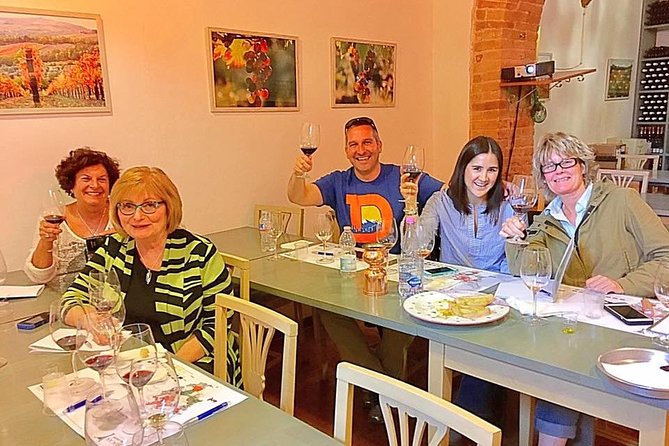
When considering purchasing Tuscan wines after exploring iconic wineries in the region, it’s important to understand key tips for making informed choices.
-
Research Tuscan Vineyards: Look into renowned Tuscan vineyards like Castello Banfi, Antinori, and Ornellaia for exceptional wine recommendations.
-
Explore Different Varietals: Experiment with various Tuscan grape varietals such as Sangiovese, Vernaccia, and Trebbiano to find your preferred taste profile.
-
Consider Vintage and Quality: Pay attention to the vintage year and quality designations like DOCG (Denominazione di Origine Controllata e Garantita) to ensure you’re getting a premium Tuscan wine.
Here's a few more nearby tours and experiences we have reviewed.
- Tuscan Cooking Class in Central Siena
- Small-Group Montepulciano and Pienza Day Trip From Siena
- Small-Group San Gimignano and Volterra Day Trip From Siena
- San Gimignano, Chianti, and Montalcino Day Trip From Siena
- Hot Air Balloon Flight Over Tuscany From Siena
- A Brunello Cooking Class With Vineyards View Winery
Common questions
Are There Any Hands-On Activities or Interactive Components During the Wine Class?
During the wine class, participants engage in interactive activities and hands-on learning experiences. These components add depth to the session, allowing attendees to immerse themselves fully in the world of Tuscan classics and enhance their wine knowledge.
Can Participants Purchase the Tuscan Wines Tasted During the Class?
Participants can purchase the Tuscan wines tasted during the class. Availability may vary, so it’s advisable to inquire during the session. This offers a unique opportunity to bring home the flavors experienced and continue the wine journey beyond the class.
Is There a Minimum Age Requirement to Attend the Wine Class?
There is no minimum age requirement for the wine class. However, participants must meet any legal restrictions regarding alcohol consumption. It’s essential for all attendees to adhere to local laws and regulations concerning age and alcohol.
Are There Any Additional Costs or Fees Not Included in the Booking Price?
When considering additional costs or fees beyond the booking price, travelers can expect transparency in the included amenities and payment options. Clear information on what is covered and available payment methods is provided for a seamless experience.
Will There Be Opportunities to Ask Questions and Interact With the Wine Expert Leading the Class?
During the class, participants can engage with the wine expert through interactive learning sessions. They’ll have opportunities to ask questions, participate in discussions, and explore the world of Tuscan classics. Interactions ensure an enriching experience.
Here's more of our most recent tour reviews happening neaby
- Private Transfer to Siena From Naples/Sorrento/Amalfi Coast
- Siena to Milan Linate Airport 1-Way Private Transfer
- Chianti, Siena, S. Gimignano & Wine Tasting Private Tour
- PRIVATE TRANSFER From Siena to Florence With Stop in S Gimignano & Monteriggioni
- Ride and Cook Like a Tuscan Is an Amazing Guided Bike Tour
- Siena Private Walking Tour With A Professional Guide
- Private Departure Transfer: Siena Hotel to Florence Airport
- Siena and San Gimignano Tour by Shuttle From Lucca or Pisa
- Siena – Rome Transfer Tour With Orvieto & Montepulciano
- Chianti Classico Bike Tour From Siena
- Tuscany Chianti Wine Tasting Full-Day Tour
Last Words
Set out on a sensory journey through the enchanting world of Tuscan wines with ‘Wine Class – Tuscan Classics.’
From exploring grape varieties to understanding winemaking techniques, this immersive experience offers a deep dive into the rich culture and history of Tuscan winemaking.
With tips on food pairings and iconic wineries to visit, this class is a must for wine enthusiasts looking to expand their knowledge and appreciation of Tuscan classics.
Cheers to a memorable wine-tasting adventure!

